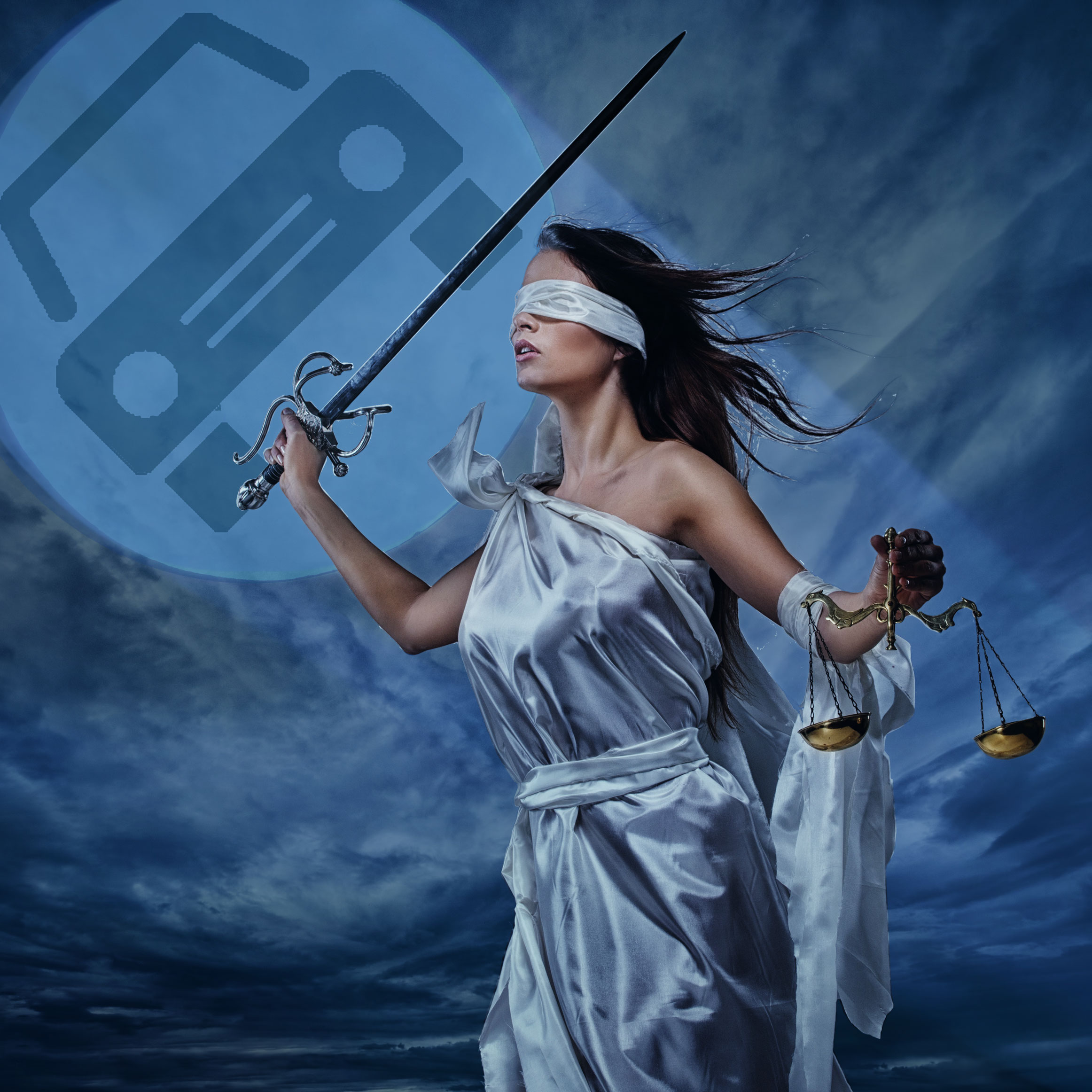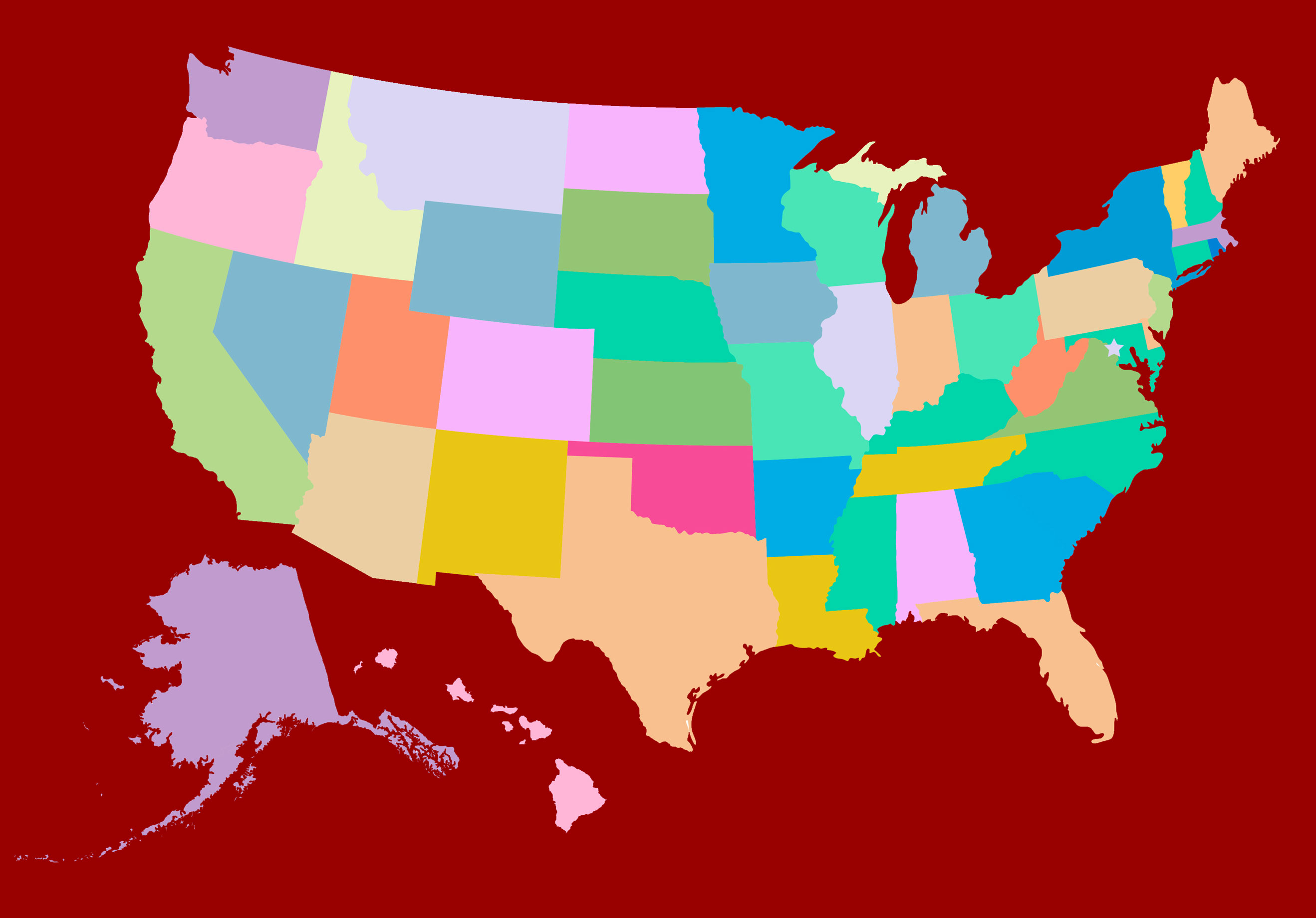To make your draft letter
to the automobile insurance company
more consistent
with the laws
of Montana,
vet and edit your draft letter
against the laws of Montana
that I copied and pasted below.
In the “What I would do today” module
of wasyourcartotaledorstolen.com,
I told you that,
if I had not yet agreed
to a valuation amount
for my total-loss vehicle,
then I would write a letter
to the automobile insurance company.
In that letter:
-
I would find fault
with the valuation methodology
that the automobile insurance company’s
valuation-services vendor
used to produce their valuation
of my total-loss vehicle. -
If the automobile insurance company
sent me a deeply flawed
market valuation report
like the CCC market valuation report
that Travelers sent to me
or like the CCC market valuation report
that Maria’s insurance company
sent to her, then I might argue
that the valuation services vendor
had motive, means, and opportunity
to generate an unfair, inaccurate,
low valuation for my total-loss vehicle. -
I would reject
the automobile insurance company’s
valuation offer. -
I would propose
that the automobile insurance company
value my total-loss vehicle
at my total-loss vehicle’s
J.D. Power Buy from Dealer price. -
I would argue
that the J.D. Power Buy from Dealer price
for my total-loss vehicle
is a fair and unbiased calculation
of my total-loss vehicle’s
actual cash value.
Some parts of my letter would be different
depending on whether my total-loss claim
was a first-party claim or a third-party claim.
Then, in the “Let’s get to work” module,
I offered you
polite and muscular model letters
in docx format that,
if you wish to do so,
you can use as the starting point
for your letter
to the automobile insurance company
if you have not yet settled
your total-loss claim.
I suggested that you edit your draft letter
to make your letter consistent
with your total-loss vehicle’s
J.D. Power valuation,
make your letter consistent
with the CCC market valuation report
or other market valuation report
that you received
from the automobile insurance company,
and, if your total-loss claim
is a first-party claim,
make your letter consistent
with what your automobile insurance policy says.
Now I take you through another way
in which you may wish
to edit your draft letter.
The laws that regulate
how automobile insurance companies
are required to value total-loss vehicles
and settle total-loss claims
are different in different states.
Hence, if you are using
my model letters
as the starting point for your letter
to the automobile insurance company,
then you or the attorney with whom you meet
will need to vet your draft letter
against the laws of your state.
You or the attorney
will need to edit your draft letter
to make it fully consistent
with the laws of your state.
To make it possible for you
to vet and edit your draft letter
against the laws of your state,
I have copied and pasted below
what I believe to be
the most relevant and useful provisions
of the laws of Montana
that regulate
how automobile insurance companies
that do business in Montana
are required to value total-loss vehicles
and settle total-loss claims.
If you read through the excerpts
of the laws below,
you may be able to make
some of the required changes,
modifications, and deletions
to your draft letter yourself.
Where you are not sure what changes,
modifications, or deletions to make
to your draft letter,
you may want to leave them
for the attorney to make
when you meet with her or him.
If you have not done so already
(and you wish to do so),
download one of my starter documents.
If your total-loss claim is a first-party claim, download
Marlow_First_party_Not_yet_settled_letter.docx.
If your total-loss claim is a third-party claim, download
Marlow_Third_party_Not_yet_settled_letter.docx.
If you have not done so already,
in your word-processing software,
use “Find and replace” ➞ “Replace all”
to replace the specifics
of my fictitious total-loss claim
with the specifics
of your total-loss claim.
Print the draft document.
Your draft docucment
will be easier to work with
if you print it on only one side
of the paper.
Follow the instructions
that I embedded in the draft document.
Depending on whether your total-loss claim
is a first-party claim
or a third-party claim
and depending on whether you choose
to work with my polite model letter,
to work with my muscular model letter,
or to blend the two model letters;
you need to know or need to find
or need to ask an attorney
the answers to one
of the following sets of questions:
Questions for a first-party claim.
Questions for a third-party claim.
vet_your_draft_letter_against_your_state_s_lawsChapter
If your total-loss claim
is a first-party claim,
then, to adapt
my first-party model letters
to the laws of your state,
you need to know or need to find
or need to ask an attorney
the answers to these sets of questions.
In my polite model letter
and in my muscular model letter,
I suggest that you add, leave in,
or take out certain sentences
depending on what your state’s laws
say about a particular aspect of the law.
To decide what to do
if you are using either of my model letters
as the starting point for your letter,
here are the questions
that you need to know or need to find
or need to ask an attorney
the answers to.
FIRST-PARTY total-loss claim.
I’ve included these questions
in the docx model letters
just before each letter.
In your printout of the docx document,
underneath each question,
you will find Yes ( ) No ( ) check offs.
FIRST-PARTY total-loss claim.
When, in a section of the law,
you find the answer to a question,
you may wish to download a PDF
of that section of the law.
To do so,
at the end of that section of the law,
click “Verify statute or Download PDF.”
You may wish to print those PDFs.
On each printout,
next to the paragraph of the law
that answers a question,
you may wish to write down
the question that the paragraph answers.
(Do not write down
just the question number because,
when you edit your starter document,
the question numbers will adjust
to your changes.)
If you follow this procedure,
then those marked-up PDF printouts
may facilitate your conversation
with the attorney with whom you meet.
FIRST-PARTY total-loss claim.
questions_of_law_for_first_party_total_loss_claimsChapter
To adapt
my polite first‑party model letter
to the laws of your state,
you need to know or need to find
or need to ask an attorney
the answer to this question.
If your state’s laws mention N.A.D.A. Guides
as an approved source
of valuations of total-loss vehicles,
then, most likely,
your state’s commissioner of insurance
has approved J.D. Power
as an authorized source of valuations
for total-loss vehicles.
In 2015, J.D. Power acquired
NADA’s Used Car Guide
and www.nadaguides.com.
The company has rebranded
NADA Guides as J.D. Power
and rebranded www.nadaguides.com
as www.jdpower.com.
Whether your state’s laws
mention N.A.D.A. Guides or not,
to be sure of the correct answer
to this question,
ask the attorney with whom you meet.
-
Does your state’s
commissioner of insurance
approve J.D. Power
as an authorized source
of valuations for total-loss vehicles?
FIRST-PARTY total-loss claim.
questions_of_law_for_first_party_polite_letterSubchapter
To adapt
my muscular first‑party model letter
to the laws of your state,
you need to know or need to find
or need to ask an attorney
the answers to these questions.
In many states, state law says that,
for a comp vehicle to qualify
as substantailly similar
to a total-loss vehicle,
the comp vehicle must be
the same make, same model,
same model year, same trim level,
same major options,
and have similar mileage.
In some states, state law goes on
to limit the mileage difference
between a comp vehicle
and a total-loss vehicle.
For example, the New Jersey
administrative code that governs
automobile physical damage claims
says:
“ ‘Substantially similar vehicle’ means
a vehicle of the same make, model, year
and condition, including all major options
of the insured vehicle. Mileage
must not exceed that of the insured vehicle
by more than 4,000 miles.”
-
Do your state’s laws say that,
for a comp vehicle to qualify
as substantially similar or comparable
to a total-loss vehicle,
the comp vehicle’s mileage
must be similar
to the total-loss vehicle’s mileage? -
Do your state’s laws go on
to limit the mileage differences
between total-loss vehicles
and substantially similar
or comparable vehicles?
FIRST-PARTY total-loss claim.
In most states,
courts have decided that the state’s
automobile insurance regulations
take away
a first-party claimant’s right to sue
his or her automobile insurance company
for punitive damages
(also called exemplary damages)
if his or her automobile insurance company
not only acts in breach of contract
but also engages
in reprehensible bad-faith misconduct.
These court decisions typically argue
that only the state’s
commissioner of insurance
can fine or otherwise punish
an automobile insurance company
for engaging
in unfair claim settlement practices
and in reprehensible misconduct.
In a few states, however,
the laws that regulate
how automobile insurance companies
that do business in the state
are required to value total-loss vehicles
and settle total-loss claims
explicitly give total-loss claimants
the right to sue
his or her automobile insurance company
for punitive or exemplary damages
if his or her automobile insurance company
not only acts in breach of contract
but also engages
in reprehensible bad-faith misconduct.
-
Do court decisions in your state
take away your right to sue
your automobile insurance company
for punitive or exemplary damages
if your automobile insurance company
not only acts in breach of contract
but also engages
in reprehensible bad-faith misconduct?
Most likely, you will need
to pose this question
to the attorney with whom you meet
because the answer to this questions
depends on court decisions.
-
Or do the regulatory laws of your state
explicitly give you the right to sue
your automobile insurance company
for punitive or exemplary damages
if your automobile insurance company
not only acts in breach of contract
but also engages
in reprehensible bad-faith misconduct?
You may be able to find
the answer to this question
in your state’s laws below.
FIRST-PARTY total-loss claim.
In many states, court decisions say
that an automobile insurance company
is not responsible for the validity
of valuation opinions
that it buys
from other corporations.
The regulatory laws of a few states
say that an automobile insurance company
is responsible
for the validity of valuations
that it uses
to value claimants’ total-loss vehicles.
-
Do the regulatory laws of your state
hold your automobile insurance company
responsible for the validity
of its valuation of your total loss vehicle?
FIRST-PARTY total-loss claim.
(The discussion and question that follow
are the same as for question 1. above
for the polite model letter.)
If your state’s laws mention N.A.D.A. Guides
as an approved source
of valuations of total-loss vehicles,
then, most likely,
your state’s commissioner of insurance
has approved J.D. Power
as an authorized source of valuations
for total-loss vehicles.
In 2015, J.D. Power acquired
NADA’s Used Car Guide
and www.nadaguides.com.
The company has rebranded
NADA Guides as J.D. Power
and rebranded www.nadaguides.com
as www.jdpower.com.
Whether your state’s laws
mention N.A.D.A. Guides or not,
to be sure of the correct answer
to this question,
ask the attorney with whom you meet.
-
Does your state’s
commissioner of insurance
approve J.D. Power
as an authorized source
of valuations for total-loss vehicles?
FIRST-PARTY total-loss claim.
questions_of_law_for_first_party_muscular_letterSubchapter
Keep an eye out
for paragraphs of the law
that may prove useful to you
if your automobile insurance company
does not agree to the valuation amount
for your total-loss vehicle
that you propose in your letter.
While you are looking for the answers
to the previous questions
for your first-party total-loss claim,
you may wish to keep an eye out
for answers to a few questions
that are outside the scope
of your letter
to your automobile insurance company.
The answers to these questions
may prove useful to you
if your automobile insurance company
does not agree to the valuation amount
that you propose in your letter.
For each of these questions too,
you may wish
to download, print, and mark up
a PDF of the section of the law
that answers the question.
FIRST-PARTY total-loss claim.
If you dispute the valuation amount
that your automobile insurance company
proposes for your total-loss vehicle,
the laws of your state may require
your automobile insurance company
to go ahead and pay you
the amount of money
that is not in dispute.
The amount of money
that is not in dispute
includes the valuation amount
for your total-loss vehicle
that your automobile insurance company
proposed.
To require
your automobile insurance company
to go ahead and pay you
the valuation amount
that is not in dispute,
the laws of your state
may say something like this:
If an insurer and the insured
or third-party claimant are unable to agree
on the value of the automobile,
an insurer shall pay the insured
or third-party claimant
the amount of the automobile’s value
that is not in dispute
as provided in section 3,
chapter 65, Oregon Laws 2009.
An insurer is not obligated
to pay the undisputed amount
until the insured
or third-party owner of the automobile:
-
(a) Agrees to execute documents
sufficient to transfer ownership
of the automobile
to the insurer; and -
(b) Authorizes the insurer,
at the insurer’s expense,
to move the automobile
to a disclosed location
selected by the insurer,
where the automobile
will remain available
for inspection and evaluation
for not fewer than 14 calendar days.
After the expiration of the 14-day period,
the insurer may proceed
with the salvage sale of the automobile.
-
If you dispute the valuation amount
that your automobile insurance company proposes for your total-loss vehicle,
do the laws of your state require
your automobile insurance company
to go ahead and pay you
the amount of money
that is not in dispute?
FIRST-PARTY total-loss claim.
In the laws below,
you may find that your state legislators
have given you a right of recourse.
If you have a right of recourse
and your automobile insurance company
refuses to value your total-loss vehicle
at its actual cash value,
then you may be able
to get additional money
from your automobile insurance company
if you exercise your right of recourse.
FIRST-PARTY total-loss claim.
If your state’s legislators
have given you a right of recourse,
they may also have given
your automobile insurance company
dubious ways to preclude or satisfy
your exercise of your right of recourse.
Your automobile insurance company
may be able to preclude your exercise
of your right of recourse if,
when they send you a settlement check,
they identify
an allegedly substantially similar vehicle
for sale at a local automobile dealership
that you allegedly can buy
for their valuation amount.
Likewise,
your automobile insurance company
may be able to satisfy your exercise
of your right of recourse if,
after you exercise your right of recourse,
they identify
an allegedly substantially similar vehicle
for sale at a local automobile dealership
that you allegedly can buy
for their valuation amount.
FIRST-PARTY total-loss claim.
If either of these possibilities come to pass,
you likely will want to inspect
your automobile insurance company’s
candidate right-of-recourse vehicle
to determine if that vehicle
is, in fact, substantially similar
to your total-loss vehicle—
same make, same model, same model year,
same major options, similar mileage,
and same or better condition.
You likely will want to verify
that your automobile insurance company’s
candidate right-of-recourse vehicle
is for sale at the automobile dealership
that your automobile insurance company
alleges at the price that
your automobile insurance company alleges.
FIRST-PARTY total-loss claim.
If the laws of your state
give you a right of recourse,
counting from the day
that your automobile insurance company
puts the initial settlement check in the mail,
you likely have only so many days
in which to exercise your right of recourse
or you lose your right of recourse.
FIRST-PARTY total-loss claim.
-
Do the laws of your state
give you a right of recourse? -
If you have a right of recourse,
do the laws of your state allow
an automobile insurance company
to preclude your exercise
of your right of recourse if,
when they send you a settlement check,
they identify
a substantially similar vehicle
for sale at a local automobile dealership
that you can buy
for their valuation amount? -
If you have a right of recourse,
do the laws of your state allow
your automobile insurance company
to satisfy your exercise
of your right of recourse if,
after you exercise your right of recourse,
they identify
a substantially similar vehicle
for sale at a local automobile dealership
that you can buy
for their valuation amount? -
If you have a right of recourse,
how many days
after your automobile insurance company
sends you a settlement check
do you have to exercise
your right of recourse
before you lose it?
FIRST-PARTY total-loss claim.
In some states, the law allows
an automobile insurance company
to take away
a first-party claimant’s right of recourse
if the automobile insurance company
invokes the appraisal clause
in the claimant’s automobile insurance policy.
-
In your state,
do you lose your right of recourse
if your automobile insurance company
invokes the appraisal clause
in your automobile insurance policy?
FIRST-PARTY total-loss claim.
The laws of some states prohibit
an automobile insurance company
from saying that,
if you cash or deposit a settlement check,
then, thereby, you agree to the settlement.
Such a prohibition may use such language
as this:
“No insurer shall issue a check or draft
in payment of a claim that contains
any language or provision that implies
or states that acceptance of the check or draft
constitutes a final settlement or release
of any or all future obligations
arising out of the loss.”
-
Do the laws of your state prohibit
an automobile insurance company
from saying that, if you cash or deposit
a settlement check, then, thereby,
you agree to the settlement?
FIRST-PARTY total-loss claim.
questions_of_law_in_case_first_party_letter_failsSubchapter
The legislators of a few states
give rights to first-party claimants
that legislators of other states
take away
from first-party claimants.
Are your state legislators right givers?
Or right takers?
At least one state
has a consumer-protection law that says
an automobile insurance company
cannot require a first-party total-loss claimant
to resolve a claim-settlement dispute
through private arbitration unless
the claimant’s automobile insurance policy
allows the claimant to resolve the dispute
through a small-claims lawsuit instead.
-
Do your state’s consumer-protection laws
give first-party total-loss claimants
the right to have a dispute resolved
through a small-claims lawsuit
in lieu of having that dispute resolved
through private arbitration?
FIRST-PARTY total-loss claim.
In a few states,
if a party to a written contract
not only breaches the terms of the contract
but also acts in bad faith,
the laws of the state
regard that act of bad faith
as a tort against the non-breaching party
to the contract.
-
In your state,
if your automobile insurance company
not only breaches the terms
of your automobile insurance policy
but also acts in bad faith,
does their bad-faith misconduct
give you a cause of action
against them under tort law? -
If the answer
to the previous question is yes,
then is your cause of action under tort law
exempt from your automobile insurance policy’s arbitration clause?
FIRST-PARTY total-loss claim.
To skip over questions
for a third-party claim, click here.
FIRST-PARTY total-loss claim.
questions_of_first_party_consumer_protection_lawsSubchapter
If your total-loss claim
is a third-party claim,
then, to adapt
my third-party model letters
to the laws of your state,
you need to know or need to find
or need to ask an attorney
the answers to these sets of questions.
In my polite model letter
and in my muscular model letter,
I suggest that you add, leave in,
or take out certain sentences
depending on what your state’s laws
say about a particular aspect of the law.
To decide what to do
if you are using either of my model letters
as the starting point for your letter,
here are the questions
that you need to know or need to find
or need to ask an attorney
the answers to.
THIRD-PARTY total-loss claim.
I’ve included these questions
in the docx model letters
just before each letter.
In your printout of the docx document,
underneath each question,
you will find Yes ( ) No ( ) check offs.
THIRD-PARTY total-loss claim.
When, in a section of the law,
you find the answer to a question,
you may wish to download a PDF
of that section of the law.
To do so,
at the end of that section of the law,
click “Verify statute or Download PDF.”
You may wish to print those PDFs.
On each printout,
next to the paragraph of the law
that answers a question,
you may wish to write down
the question that the paragraph answers.
(Do not write down
just the question number because,
when you edit your starter document,
the question numbers will adjust
to your changes.)
If you follow this procedure,
then those marked-up PDF printouts
may facilitate your conversation
with the attorney with whom you meet.
THIRD-PARTY total-loss claim.
questions_of_law_for_third_party_total_loss_claimsChapter
To adapt
my polite third‑party model letter
to the laws of your state,
you need to know or need to find
or need to ask an attorney
the answer to this question.
If your state’s laws mention N.A.D.A. Guides
as an approved source
of valuations of total-loss vehicles,
then, most likely,
your state’s commissioner of insurance
has approved J.D. Power
as an authorized source of valuations
for total-loss vehicles.
In 2015, J.D. Power acquired
NADA’s Used Car Guide
and www.nadaguides.com.
The company has rebranded
NADA Guides as J.D. Power
and rebranded www.nadaguides.com
as www.jdpower.com.
Whether your state’s laws
mention N.A.D.A. Guides or not,
to be sure of the correct answer
to this question,
ask the attorney with whom you meet.
-
Does your state’s
commissioner of insurance
approve J.D. Power
as an authorized source
of valuations for total-loss vehicles?
THIRD-PARTY total-loss claim.
questions_of_law_for_third_party_polite_letterSubchapter
To adapt
my muscular third‑party model letter
to the laws of your state,
you need to know or need to find
or need to ask an attorney
the answers to these questions.
In many states, state law says that,
for a comp vehicle to qualify
as substantailly similar
to a total-loss vehicle,
the comp vehicle must be
the same make, same model,
same model year, same trim level,
same major options,
and have similar mileage.
In some states, state law goes on
to limit the mileage difference
between a comp vehicle
and a total-loss vehicle.
For example, the New Jersey
administrative code that governs
automobile physical damage claims
says:
“ ‘Substantially similar vehicle’ means
a vehicle of the same make, model, year
and condition, including all major options
of the insured vehicle. Mileage
must not exceed that of the insured vehicle
by more than 4,000 miles.”
-
Do your state’s laws say that,
for a comp vehicle to qualify
as substantially similar or comparable
to a total-loss vehicle,
the comp vehicle’s mileage
must be similar
to the total-loss vehicle’s mileage? -
Do your state’s laws go on
to limit the mileage differences
between total-loss vehicles
and substantially similar
or comparable vehicles?
THIRD-PARTY total-loss claim.
(The discussion and question that follow
are the same as for question 1. above
for the polite model letter.)
If your state’s laws mention N.A.D.A. Guides
as an approved source
of valuations of total-loss vehicles,
then, most likely,
your state’s commissioner of insurance
has approved J.D. Power
as an authorized source of valuations
for total-loss vehicles.
In 2015, J.D. Power acquired
NADA’s Used Car Guide
and www.nadaguides.com.
The company has rebranded
NADA Guides as J.D. Power
and rebranded www.nadaguides.com
as www.jdpower.com.
Whether your state’s laws
mention N.A.D.A. Guides or not,
to be sure of the correct answer
to this question,
ask the attorney with whom you meet.
-
Does your state’s
commissioner of insurance
approve J.D. Power
as an authorized source
of valuations for total-loss vehicles?
THIRD-PARTY total-loss claim.
questions_of_law_for_third_party_muscular_letterSubchapter
Keep an eye out
for paragraphs of the law
that may prove useful to you
if the automobile insurance company
does not agree to the valuation amount
that you propose in your letter
for your total-loss vehicle.
While you are looking for the answers
to the previous questions
for your third-party total-loss claim,
you may wish to keep an eye out
for answers to a few questions
that are outside the scope
of your letter
to the automobile insurance company.
The answers to these questions
may prove useful to you
if the automobile insurance company
does not agree to the valuation amount
that you propose in your letter.
For each of these questions too,
you may wish
to download, print, and mark up
a PDF of the section of the law
that answers the question.
THIRD-PARTY total-loss claim.
In some states, the laws that regulate
how automobile insurance companies
are required to value total-loss vehicles
and settle total-loss claims say
that those laws apply
only to first-party claims.
In some states, those laws say
that the laws apply to first-party claims
and to third-party claims.
In some states, those laws say
that all the laws apply to first-party claims
and only some of the laws
apply to third-party claims.
Ordinarily, in most states,
you have much stronger rights
in the settlement of a third-party claim
than you do
in the settlement of a first-party claim.
The automobile insurance company
that you’re dealing with
on your third-party claim
may think and act like
they can treat you
the same way
that they treat their policyholders
on those policyholders’ first-party claims.
The automobile insurance company
that you’re dealing with
on your third-party claim
may even try to trick you
into conforming
with claim-settlement regulations
that apply only to first-party claims.
Don’t let them!
To be savvy enough
to keep the automobile insurance company
that you’re dealing with
from treating you
like you’re a first-party claimant,
familiarize yourself
with which of your state’s
automobile insurance
claim-settlement laws—
if any—
apply to you and your claim.
If your state’s laws
consistently talk about “the insured,”
and never say that the laws
also apply to third-party claimants,
then that language strongly suggests
that those laws do not apply to you
or to your third-party claim.
You are not the insured.
The at-fault-driver policyholder
is the insured.
-
Do the laws of your state that regulate
how automobile insurance companies
are required to value total-loss vehicles
and settle total-loss claims
apply only to first-party claims? -
Or do all those laws
apply to both first-party claims
and third-party claims? -
Or do all the laws
apply to first-party claims
and only some of the laws
also apply to third-party claims?
THIRD-PARTY total-loss claim.
If you dispute the valuation amount
that the automobile insurance company
proposes for your total-loss vehicle,
the laws of your state may require
the automobile insurance company
to go ahead and pay you
the amount of money
that is not in dispute.
The amount of money
that is not in dispute
includes the valuation amount
for your total-loss vehicle
that the automobile insurance company
proposed.
To require
the automobile insurance company
to go ahead and pay you
the valuation amount
that is not in dispute,
the laws of your state
may say something like this:
If an insurer and the insured
or third-party claimant are unable to agree
on the value of the automobile,
an insurer shall pay the insured
or third-party claimant
the amount of the automobile’s value
that is not in dispute
as provided in section 3,
chapter 65, Oregon Laws 2009.
An insurer is not obligated
to pay the undisputed amount
until the insured
or third-party owner of the automobile:
-
(a) Agrees to execute documents
sufficient to transfer ownership
of the automobile
to the insurer; and -
(b) Authorizes the insurer,
at the insurer’s expense,
to move the automobile
to a disclosed location
selected by the insurer,
where the automobile
will remain available
for inspection and evaluation
for not fewer than 14 calendar days.
After the expiration of the 14-day period,
the insurer may proceed
with the salvage sale of the automobile.
-
If you dispute the valuation amount
that the automobile insurance company proposes for your total-loss vehicle,
do the laws of your state require
the automobile insurance company
to go ahead and pay you
the amount of money
that is not in dispute?
THIRD-PARTY total-loss claim.
The laws of some states
give third-party total-loss claimants
a right of recourse.
If you have a right of recourse
and the automobile insurance company
refuses to value your total-loss vehicle
at its actual cash value,
then you may be able
to get additional money
from the automobile insurance company
if you exercise your right of recourse.
THIRD-PARTY total-loss claim.
If your state’s legislators
have given you a right of recourse,
they may also have given
the automobile insurance company
dubious ways to preclude or satisfy
your exercise of your right of recourse.
The automobile insurance company
may be able to preclude your exercise
of your right of recourse if,
when they send you a settlement check,
they identify
an allegedly substantially similar vehicle
for sale at a local automobile dealership
that you allegedly can buy
for their valuation amount.
Likewise, the automobile insurance company
may be able to satisfy your exercise
of your right of recourse if,
after you exercise your right of recourse,
they identify
an allegedly substantially similar vehicle
for sale at a local automobile dealership
that you allegedly can buy
for their valuation amount.
THIRD-PARTY total-loss claim.
If either of these possibilities come to pass,
then you likely will want to inspect
the automobile insurance company’s
candidate right-of-recourse vehicle
to determine if that vehicle
is, in fact, substantially similar
to your total-loss vehicle—
same make, same model, same model year,
same major options, similar mileage,
and same or better condition.
You likely will want to verify
that the automobile insurance company’s
candidate right-of-recourse vehicle
is for sale at the automobile dealership
that the automobile insurance company
alleges at the price that
the automobile insurance company alleges.
THIRD-PARTY total-loss claim.
If the laws of your state
give you a right of recourse,
counting from the day
that the automobile insurance company
puts the initial settlement check in the mail,
you likely have only so many days
in which to exercise your right of recourse
or you lose your right of recourse.
THIRD-PARTY total-loss claim.
-
Do the laws of your state
give you a right of recourse? -
If you have a right of recourse,
do the laws of your state allow
an automobile insurance company
to preclude your exercise
of your right of recourse if,
when they send you a settlement check,
they identify
a substantially similar vehicle
for sale at a local automobile dealership
that you can buy
for their valuation amount? -
If you have a right of recourse,
do the laws of your state allow
the automobile insurance company
to satisfy your exercise
of your right of recourse if,
after you exercise your right of recourse,
they identify
a substantially similar vehicle
for sale at a local automobile dealership
that you can buy
for their valuation amount? -
If you have a right of recourse,
how many days
after the automobile insurance company
sends you a settlement check
do you have to exercise
your right of recourse
before you lose it?
THIRD-PARTY total-loss claim.
The laws of some states prohibit
an automobile insurance company
from saying that,
if you cash or deposit a settlement check,
then, thereby, you agree to the settlement.
Such a prohibition may use such language
as this:
“No insurer shall issue a check or draft
in payment of a claim that contains
any language or provision that implies
or states that acceptance of the check or draft
constitutes a final settlement or release
of any or all future obligations
arising out of the loss.”
-
Do the laws of your state prohibit
an automobile insurance company
from saying that,
if you cash or deposit
a settlement check, then, thereby,
you agree to the settlement?
THIRD-PARTY total-loss claim.
questions_of_law_in_case_third_party_letter_failsSubchapter
Questions about the laws of your state
to which the answers
may prove useful to you
if you end up suing
the at-fault driver and his or her
automobile insurance company
for the money
that the at-fault driver’s
automobile insurance company
cheated you out of.
The laws of some states
specify multiple sources
that an automobile insurance company
may use to come up
with an initial valuation offer
for a claimant’s total loss vehicle.
The laws then go on to say
that the automobile insurance company’s
initial valuation offer
cannot be lower
than the lowest valuation amount
from one of these approved sources.
The laws of some states say
that an automobile insurance company
may use as its initial valuation offer
a valuation generated by a valuation source
that uses a computerized data base
that is approved
by the state’s commissioner of insurance.
A state’s commissioner of insurance
may approve valuation sources
such as CCC Information Services
a.k.a. CCC Intelligent Solutions.
CCC Information Services
a.k.a. CCC Intelligent Solutions
produced the garbage-in-garbage-out
CCC market valuation report
for my total-loss vehicle
and produced
the GIGO CCC market-valuation report
for Maria’s total-loss vehicle.
Valuation sources that produce valuations
only for automobile insurance companies
and that use a computerized data base
to produce those valuations
likely produce the lowest valuations
of any of the approved sources.
Such valuation sources may have
motive, means, and opportunity
to undervalue your total-loss vehicle.
-
Do the laws of your state
specify multiple sources
that an automobile insurance company
may use to come up
with an initial valuation offer
for your total-loss vehicle? -
Do the laws of your state say
that the automobile insurance company’s
initial valuation offer
for your total-loss vehicle
cannot be lower
than the lowest valuation amount
from one of the approved sources? -
Do the laws of your state
allow an automobile insurance company
to use a valuation
generated by a valuation service
that uses a computerized data base?
THIRD-PARTY total-loss claim.
The laws of some states say
that an automobile insurance company
shall value a total-loss vehicle
at its actual cash value.
The laws of some states
define actual cash value.
-
Do the laws of your state say
that an automobile insurance company
shall value a total-loss vehicle
at its actual cash value? -
Do the laws of your state
define actual cash value?
THIRD-PARTY total-loss claim.
The laws of some states defnine
substantially similar vehicle
or comparable vehicle.
-
Do the laws of your state define substantially similar vehicle
or comparable vehicle?
Regardless of what the statutory laws
of your state say,
keep in mind
that the fundamental principle
of the law of negligence torts
is this:
When one person,
through an act of negligence,
harms another person;
the negligent person
(or his or her insurance company)
is obligated to pay
the victim of the negligent act
enough money
to make the victim whole
for his or her loss.
That is, the negligent person
(or his or her insurance company)
is obligated to pay
the victim of the negligent act
enough money
to make the victim as well off financially
as he or she was before the negligent act.
If you cannot negotiate
a fair valuation of your total-loss vehicle
with the automobile insurance company,
then you can refuse to agree
to the automobile insurance company’s
valuation of your total-loss vehicle.
You can dispute their valuation.
You can sue the at-fault driver
for the amount of money
that his or her
automobile insurance company
cheated you out of.
THIRD-PARTY total-loss claim.
questions_of_third_party_consumer_protection_lawsSubchapter
If it’s more work
than you wish to do
to vet and edit your draft letter
against Montana’s laws,
then let the attorney
with whom you meet
vet and edit the letter for you.
I’m a do-it-yourself kind of person.
You may not be.
Or you may be too busy
with the rest of your life
to spend a lot of time
working on your total-loss claim.
If, for whatever reason,
you prefer not to vet and edit
a draft letter against your state’s laws,
don’t do it.
You will be sufficiently well prepared
to meet with an attorney
about your total-loss claim
so long as you provide him or her
with copies of:
-
The market valuation report
that you received
from the automobile insurance company
for your total-loss vehicle, -
The Monroney Label window sticker
for your total-loss vehicle, -
Your total-loss vehicle’s
J.D. Power Buy from Dealer price, -
The specs that the J.D. Power calculator
used to value your total-loss vehicle, -
Your draft letter
at whatever stage of development
it happens to be in, -
The police report on your vehicle’s
collision or theft, and -
If your claim is a first-party claim,
your automobile insurance policy.
If you provide the attorney
with these ingredients,
then he or she can turn the work
that you have done
into an effective letter and package.
skip_this_step_if_you_want_toChapter
Help me create model letters
tailored to the laws of every state.
Send me a few dollars.
Today I’m having to ask you
to do a lot more work
than I would like to.
I’m having to ask you
to vet and edit your draft letter
against the laws of your state
that I copied and pasted below.
As I continue to develop
wasyourcartotaledorstolen.com,
I hope to offer total-loss claimants
starter letters
for first-party total-loss claims
and starter letters
for third-party total-loss claims
that are tailored to the laws
of each and every state.
“Jesus, Jerry!
“That sounds like a helluva lot of work!”
Yeah, I know!
Shows you how much I hate seeing
giant, powerful, unethical corporations
rip off everyday Americans.
With starter letters that are tailored
to the laws of each and every state,
future total-loss claimants
who come to wasyourcartotaledorstolen.com
will have a lot less work to do.
They will be able to create draft letters
that require less of a local attorney’s time
to review, vet, tweak, and strengthen.
I’m itching to do the work.
In the left-hand column
next to each state’s laws,
I hope to give total-loss claimants
a guided tour of the laws that,
in their state, regulate
how automobile insurance companies
are required to value total-loss vehicles
and settle total-loss claims.
On that guided tour,
I plan to explain and comment on
the important provisions
of each state’s laws.
On that guided tour,
I plan to point out
the answers to questions
that, today, I have to ask you
to search for yourself.
On that guided tour,
I plan to point out which paragraphs
of each state’s laws read like
they were written
by a lobbyist who works
for automobile insurance companies.
Total-loss claimants
also will want to know
the answers to other questions
about the laws of their state
that do not appear in the state’s
automobile insurance regulatory laws.
Over time, as I continue my research
and as I receive more and more
pro bono publico guidance
(guidance for the public good)
from attorneys in each state;
I hope to post more and more answers
to these questions.
If I am able to achieve these goals,
then, over time, total-loss claimants
who come to wasyourcartotaledorstolen.com
will be able to gain a fuller,
more accurate, more precise,
and more powerful understanding
of the rights
that their state legislators
have given them
and of the rights
that their state legislators
have taken away from them.
Everyday Americans will be able
to have more knowledgeable
and more productive conversations
with local attorneys.
If everyday Americans
who are fed up
with automobile insurance companies
cheating them and ripping them off
will support my work;
then I may be able to build
my one-person efforts
into an organization.
With an organization,
we may be able to persuade
our state legislators
(and perhaps our national legislators)
to rewrite some of the laws
that make it so easy
for automobile insurance companies
to screw us all.
If you would like to help me
teach everyday Americans
how to get fair valuations
of their total-loss vehicles,
then, at the top right of your screen,
Send me a few dollars.
With your help, I’m just getting started.
help_me_create_letters_tailored_to_laws_of_every_stateChapter
The laws of Montana
that regulate
how automobile insurance companies
that do business
in Montana
are required
to value total-loss vehicles
and settle total-loss claims.
My Comments
Montana Regulations
The regulations that govern
how insurance companies
that operate in Montana
are required
to value total‑loss vehicles
and settle total‑loss claims
are part
of the Montana Code.
Montana Code
Title 33 - INSURANCE AND INSURANCE COMPANIES
Chapter 18 - UNFAIR TRADE PRACTICES
Part 2 - Insurer’s Relations With Insured and Claimant
Current through the 2021 Legislative Session
To help you zero in
on the most relevant and useful paragraphs
of your state’s
automobile insurance regulations,
here’s how I have color coded
your state’s laws:
What I believe to be
the most relevant and useful paragraphs
of your state’s law appear in red.
Relevant and potentially useful paragraphs
appear in black.
Paragraphs unlikely to be relevant or useful
appear in grey.
Just in case you landed here
looking for information
about how automobile insurance companies
are supposed to settle claims
in which your vehicle can be repaired
(partial-loss claims),
paragraphs of the law
that deal with repairs
appear in blue.
To make sure that a section
of the law has not changed
since I copied it and pasted it here,
at the end of that section,
click: Verify statute or Download PDF.
If you discover
that a section of a law has changed
or is no longer accessible
through casetext.com,
please send me an email
and let me know
so I can update the law
or update the verify link here.
Thomson Reuters Westlaw
recently acquired Casetext.
I do not know if Thomson Reuters Westlaw
will continue to make these state laws
available to everyday Americans for free.
Section 33-18-201 - Unfair claim settlement practices prohibited
A person may not, with such frequency as to indicate a general business practice, do any of the following:
-
(1) misrepresent pertinent facts or insurance policy provisions relating to coverages at issue;
-
(2) fail to acknowledge and act reasonably promptly upon communications with respect to claims arising under insurance policies;
-
(3) fail to adopt and implement reasonable standards for the prompt investigation of claims arising under insurance policies;
-
(4) refuse to pay claims without conducting a reasonable investigation based upon all available information;
-
(5) fail to affirm or deny coverage of claims within a reasonable time after proof of loss statements have been completed;
-
(6) neglect to attempt in good faith to effectuate prompt, fair, and equitable settlements of claims in which liability has become reasonably clear;
-
(7) compel insureds to institute litigation to recover amounts due under an insurance policy by offering substantially less than the amounts ultimately recovered in actions brought by the insureds;
-
(8) attempt to settle a claim for less than the amount to which a reasonable person would have believed the person was entitled by reference to written or printed advertising material accompanying or made part of an application;
-
(9) attempt to settle claims on the basis of an application that was altered without notice to or knowledge or consent of the insured;
-
(10) make claims payments to insureds or beneficiaries not accompanied by statements setting forth the coverage under which the payments are being made;
-
(11) make known to insureds or claimants a policy of appealing from arbitration awards in favor of insureds or claimants for the purpose of compelling them to accept settlements or compromises less than the amount awarded in arbitration;
-
(12) delay the investigation or payment of claims by requiring an insured, claimant, or physician of either to submit a preliminary claim report and then requiring the subsequent submission of formal proof of loss forms, both of which submissions contain substantially the same information;
-
(13) fail to promptly settle claims, if liability has become reasonably clear, under one portion of the insurance policy coverage in order to influence settlements under other portions of the insurance policy coverage; or
-
(14) fail to promptly provide a reasonable explanation of the basis in the insurance policy in relation to the facts or applicable law for denial of a claim or for the offer of a compromise settlement.
Citation:
§ -18-201, MCA
Verify statute or Download PDF
If verify link fails, Google:
casetext.com, the citation.
With your support, more comments to come.
Section 33-18-221 - Designation of specific repair shops prohibited - lists allowed
-
(1) An insurance company, including its producers and adjusters, that issues or renews a policy of insurance in this state covering, in whole or part, a motor vehicle may not:
-
(a) require that a person insured under the policy use a particular company or location for providing automobile glass replacement, glass repair services, or glass products insured in whole or part by the policy; or
-
(b) engage in any act or practice of intimidation, coercion, or threat for or against an insured person to use a particular company or location to provide automobile glass replacement, glass repair services, or glass products insured, in whole or in part, under the terms of an insurance policy.
-
-
(2)
-
(a) An insurance company may provide an insured with a list that includes the names of particular companies or locations providing automobile glass replacement, glass repair services, or glass products if some of the listed companies or locations are reasonably close and convenient to the insured. The insurance company may restrict the list to those companies or locations that meet reasonable standards of quality, service, and safety.
-
(b) The insured may use a nonlisted company or location at the insured’s sole discretion, and subject to the provisions of subsections (2)(c) and (3), the insurance company will fully and promptly pay for the cost of automobile glass replacement, glass repair services, or glass products provided, less any deductible under the terms of the policy.
-
(c) If the insured does not use a list as provided in subsection (2)(a), the insurer may require the insured to obtain not more than three competitive bids to establish the cost of automobile glass replacement, glass repair services, or glass products provided.
-
-
(3) This section does not require an insurer to pay more for automobile glass replacement, glass repair services, or glass products than the market price as defined in 33-18-222.
-
(4) Notwithstanding the provisions of subsections (1) through (3), an insurance company may agree to pay the full cost of glass replacement or repair.
Citation:
§ -18-221, MCA
Verify statute or Download PDF
If verify link fails, Google:
casetext.com, the citation.
With your support, more comments to come.
Section 33-18-222 - Market price
-
(1) For purposes of 33-18-221, 33-18-223, and 33-18-224, “market price” means the:
-
(a) price agreed upon between the insurer and the business; or
-
(b) prevailing competitive rate that is reasonable and necessary in the local area where the repairs are to be performed.
-
-
(2) The market price may not be less than cost as provided in 30-14-209.
Citation:
§ -18-222, MCA
Verify statute or Download PDF
If verify link fails, Google:
casetext.com, the citation.
With your support, more comments to come.
Section 33-18-223 - Prohibited activities - glass broker defined
-
(1) It is unlawful for an insurance company, individually or with others, to directly or indirectly:
-
(a) establish an agreement with any person to act as a glass broker for the insurance company under which the glass broker sets a price that must be met by a glass repair shop as a condition for doing glass replacement or glass repair work for the insurance company;
-
(b) establish an agreement with a glass broker that requires a glass repair shop to bill through that glass broker as a condition of doing glass replacement or glass repair work; or
-
(c) establish a price that must be met by a glass repair shop as a condition for doing glass replacement or glass repair work that is below the market price as provided in 33-18-222.
-
-
(2) As used in this section, “glass broker” means an automobile glass company that acts as a third-party agent for the insurer whenever the glass broker enters into agreements with other automobile glass dealers to perform glass replacement or glass repair work.
Citation:
§ -18-223, MCA
Verify statute or Download PDF
If verify link fails, Google:
casetext.com, the citation.
With your support, more comments to come.
Section 33-18-224 - Designation of specific automobile body repair businesses prohibited
-
(1)
-
(a) An insurance company, including its producers and adjusters, that issues or renews a policy of insurance in this state covering, in whole or in part, a motor vehicle may not:
-
(i) require that a claimant under the policy use a particular automobile body repair business or location for an estimate or a repair;
-
(ii) engage in any act or practice that intimidates, coerces, or threatens a claimant or that provides an incentive or inducement for a claimant to use a particular automobile body repair business or location; or
-
(iii) unilaterally disregard a repair operation or cost identified by an estimating system that the insurer and an automobile body repair business or location have agreed to utilize in determining the cost of repair.
-
-
(b) An insurance company, including its producers and adjusters, that issues or renews a policy of insurance in this state covering, in whole or in part, a motor vehicle may have access to the motor vehicle for purposes of preparing a competitive estimate.
-
-
(2)
-
(a) Except as provided in subsection (2)(b), if an insurance company has direct repair programs with automobile body repair businesses or locations, the insurance company may not limit the number of automobile body repair businesses or locations with whom it maintains direct repair programs.
-
(b) An insurance company may limit the number of automobile body repair businesses or locations participating in the insurance company’s direct repair program to those automobile body repair businesses or locations that comply with the provisions of subsection (2)(c). An insurance company is not required to establish a direct repair program in a particular market area in which the insurance company’s number of policyholders does not support establishing a direct repair program with any automobile body repair business or location.
-
(c) Upon request, the insurance company shall provide, without prejudice or bias, the claimant with a list that includes all automobile body repair businesses or locations that are reasonably close or convenient to the claimant and willing to provide services and that meet the insurance company’s criteria regarding whether the automobile body repair business or location:
-
(i) possesses the equipment necessary to undertake repairs;
-
(ii) undertakes training of management and technical personnel with respect to repair information and the claims process;
-
(iii) agrees to perform quality repairs at the market price and that meet reasonable industry repair standards;
-
(iv) agrees to warrant the quality of work, including refinishing, in writing to the claimant, for a period of not less than 1 year from the date of repair;
-
(v) agrees to inspection of its repairs and services by the insurance company and agrees that the insurance company may terminate the direct repair program with the automobile body repair business or location if the repairs and services are below the standards of quality required by the insurance company; and
-
(vi) if requested, agrees to execute an agreement with the insurance company that may contain additional criteria that are not designed to unfairly limit the number of automobile body repair businesses or locations with whom the insurance company maintains direct repair programs. The additional criteria may include criteria determined to be necessary by the insurance company and designed to ensure that the automobile body repair business or location has the necessary estimating systems and programs and equipment to communicate electronically with the insurance company and that the automobile body repair business or location has taken steps to ensure the privacy of the insurance company and the claimant.
-
-
(d) If the claimant requests the list provided for in subsection (2)(c), the insurance company shall inform the claimant that the claimant may use an automobile body repair business or location at the sole discretion of the claimant.
-
-
(3) For the purposes of this section, an incentive or inducement does not include:
-
(a) providing a claimant with the list provided for in subsection (2)(c); or
-
(b) referring to a warranty issued by an automobile body repair business or location.
-
-
(4) The claimant may use an automobile body repair business or location at the claimant’s sole discretion, and the insurance company shall pay for the reasonable and necessary cost of the automobile body repair services for covered damages, less any deductible under the terms of the policy. This section does not require an insurer to pay more for automobile body repair services than the market price, as defined in 33-18-222.
-
(5) If the claimant uses an automobile body repair business or location that is not on a list provided for in subsection (2)(c), the insurance company may not be held liable for any repair work performed by the automobile body repair business or location chosen by the claimant.
-
(6) It is unlawful for an automobile body repair business or location to charge or agree to charge a claimant more than an uninsured customer for any automobile body repair service.
-
(7) An insurance company that contracts with an independent adjuster may not be held liable for the independent adjuster’s failure to comply with the terms of this section.
-
(8) For purposes of this section:
-
(a) “automobile body repair business or location” does not include a business or location that exclusively provides automobile glass replacement, glass repair services, or glass products;
-
(b) “claimant” means the person seeking repair of a motor vehicle whether that person is the insured person or a third party making a claim against the insurer.
-
Citation:
§ -18-224, MCA
Verify statute or Download PDF
If verify link fails, Google:
casetext.com, the citation.
With your support, more comments to come.
Section 33-18-225 - Designation of specific car rental business prohibited
-
(1) An insurance company, including its producers and adjusters, that issues or renews a policy of insurance in this state covering, in whole or in part, a motor vehicle may not:
-
(a) require that a person, whether or not insured by the insurance company, for whom the insurance company is obligated to provide a car rental while the person’s own car is being repaired use a particular car rental business; or
-
(b) engage in any act or practice that intimidates, coerces, or threatens a person to use a particular car rental business.
-
-
(2)
-
(a) An insurance company that is subject to the provisions of this section and that provides for direct payment to any one or more car rental businesses in this state must provide for direct payment to any car rental business selected by a person described in subsection (1)(a).
-
(b) For the purposes of this section, “direct payment” means a method by which an insurance company makes a direct payment on behalf of an insured or a third party either through electronic means or by check to a car rental business.
-
(c) The insurance company may approve the daily rate to be paid by the insurance company based on the car classification.
-
(d) The insurance company is not obligated to pay more to the car rental business than is provided in the insured’s policy limits pursuant to 33-23-203.
-
-
(3) This section does not require an insurer to pay more for a comparable car rental than the lowest price negotiated between a car rental business and the insurer.
-
(4) This section does not prohibit an insurer, its producers, or its adjusters from providing to a customer the name of a car rental business with which arrangements may have been made to provide car rental services as long as the ultimate choice is left to the person described in subsection (1)(a).
Citation:
§ -18-225, MCA
Verify statute or Download PDF
If verify link fails, Google:
casetext.com, the citation.
With your support, more comments to come.
Section 33-18-232 - Time for payment of claims
-
(1) An insurer shall pay or deny a claim within 30 days after receipt of a proof of loss unless the insurer makes a reasonable request for additional information or documents in order to evaluate the claim. If an insurer makes a reasonable request for additional information or documents, the insurer shall pay or deny the claim within 60 days of receiving the proof of loss unless the insurer has notified the insured, the insured’s assignee, or the claimant of the reasons for failure to pay the claim in full or unless the insurer has a reasonable belief that insurance fraud has been committed and the insurer has reported the possible insurance fraud to the commissioner. This section does not eliminate an insurer’s right to conduct a thorough investigation of all the facts necessary to determine payment of a claim.
-
(2) If an insurer fails to comply with this section and the insurer is liable for payment of the claim, the insurer shall pay an amount equal to the amount of the claim due plus 10% annual interest calculated from the date on which the claim was due. For purposes of calculating the amount of interest, a claim is considered due 30 days after the insurer’s receipt of the proof of loss or 60 days after receipt of the proof of loss if the insurer made a reasonable request for information or documents. Interest payments must be made to the person who receives the claims payment. Interest is payable under this subsection only if the amount of interest due on a claim exceeds $5.
-
(3) A private cause of action under 33-18-201 or 33-18-242 may not be based on the compliance or noncompliance with the requirements of this section and evidence of compliance or noncompliance with this section is not admissible in any private action based on 33-18-201 or 33-18-242.
Citation:
§ -18-232, MCA
Verify statute or Download PDF
If verify link fails, Google:
casetext.com, the citation.
With your support, more comments to come.
Section 33-18-242 - Independent cause of action - burden of proof
-
(1) An insured or a third-party claimant has an independent cause of action against an insurer for actual damages caused by the insurer’s violation of subsection (1), (4), (5), (6), (9), or (13) of 33-18-201.
-
(2) In an action under this section, a plaintiff is not required to prove that the violations were of such frequency as to indicate a general business practice.
-
(3) An insured who has suffered damages as a result of the handling of an insurance claim may bring an action against the insurer for breach of the insurance contract, for fraud, or pursuant to this section, but not under any other theory or cause of action. An insured may not bring an action for bad faith in connection with the handling of an insurance claim.
-
(4) In an action under this section, the court or jury may award such damages as were proximately caused by the violation of subsection (1), (4), (5), (6), (9), or (13) of 33-18-201. Exemplary damages may also be assessed in accordance with 27-1-221.
-
(5) An insurer may not be held liable under this section if the insurer had a reasonable basis in law or in fact for contesting the claim or the amount of the claim, whichever is in issue.
-
(6)
-
(a) An insured may file an action under this section, together with any other cause of action the insured has against the insurer. Actions may be bifurcated for trial where justice so requires.
-
(b) A third-party claimant may not file an action under this section until after the underlying claim has been settled or a judgment entered in favor of the claimant on the underlying claim.
-
-
(7) The period prescribed for commencement of an action under this section is:
-
(a) for an insured, within 2 years from the date of the violation of 33-18-201; and
-
(b) for a third-party claimant, within 1 year from the date of the settlement of or the entry of judgment on the underlying claim.
-
-
(8) As used in this section, an insurer includes a person, firm, or corporation utilizing self-insurance to pay claims made against them.
Citation:
§ -18-242, MCA
Verify statute or Download PDF
If verify link fails, Google:
casetext.com, the citation.
With your support, more comments to come.
Section 33-18-245 - Prompt payment of motor vehicle damage claims
-
(1) Except for providers who are prepaid or agree to a different payment schedule, an insurer shall make an offer to pay or shall pay all approved claims for covered services or damages that solely involve the recovery of property damages in an amount of $2,500 or less arising out of the ownership, maintenance, or use of a motor vehicle within 30 working days of receipt of a proof of loss that is correctly completed and submitted to the insurer.
-
(2) Subsection (1) does not apply to an insurer who has notified the insured or the insured’s assignee of the reasons for the insurer’s failure to pay the claim in full or to an insurer that has made a reasonable request for additional information or documents.
Citation:
§ -18-245, MCA
Verify statute or Download PDF
If verify link fails, Google:
casetext.com, the citation.
“Jerry, looks to me like
the legislators of some states
are pimping us out
to automobile insurance companies.”
“Jerry, I skimmed through the laws
of half a dozen or so different states.
“Looks to me like the legislators
of some states aren’t just making it easy
for automobile insurance companies
to have their way with us.
“Looks to me like they’re pimping us out
to the automobile insurance companies.”
If that’s the conclusion that you come to,
my friend, I cannot necessarily say
that I would disagree with you.
“Our state legislators are pimping out
to automobile insurance companies
the very voters
who voted those legislators
into office?
“How can that be?”
In a word, money!
Every year, in the USA,
automobile insurance companies
collect hundreds of billions of dollars
in automobile insurance premiums.
Money of that magnitude
translates into political power.
Automobile insurance companies
have many ways
in which they can reward
whoever helps them maximize their profits.
Then too, there’s a revolving door
between insurance companies
and state regulatory departments.
Some employees of insurance companies
go on to become
state commissioners of insurance.
Some state commissioners of insurance
go on to become highly-paid employees
of insurance companies
or go on to become
fabulously compensated lobbyists
for insurance companies.
One way for a man or woman
to maximize his or her career income
in the insurance industry
is to help insurance companies
maximize their profits
before he or she becomes
a state commissioner of insurance
and to help insurance companies
maximize their profits
after he or she becomes
a state commissioner of insurance.
“Is there anything we can do?”
In principle, yes.
The Affordable Care Act
limits the percentage
of health-insurance premium dollars
that health insurance companies
can keep for themselves
and their shareholders.
But I have yet to run across a law
that limits the percentage
of automobile insurance premium dollars
that automobile insurance companies
can keep for themselves
and their shareholders.
I’d like to see
our state legislators enact such laws
or our federal legislators enact such a law.
“Until that happens,
we’re goinng to keep getting pimped out
to the automobile insurance companies?”
You read your state’s laws.
You’ve witnessed up close the conduct
of the automobile insurance company
that you’re dealing with
under your state’s laws.
I’ll leave it to you
to reach your own conclusions.
I’m doing what I can to teach folks
how to fight back against rapacious
automobile insurance companies.
From my questions
about your state’s laws,
you learned that the legislators
of some states
give total-loss claimants
rights that legislators
of other states take away.
I would like to see
the legislators of states
that have taken away rights
restore those rights.
I would like to see state legislators
give total-loss claimants
rights that would make it easy
for total-loss claimants
to get fair valuations
of their total-loss vehicles.
I’d like to build an organization
that can try to persuade our legislators
to change some of the laws
that make it so easy
for automobile insurance companies
to have their way with you.
If you would like to help me,
then, at the top right of your screen,
Send me a few dollars.
Looks_to_me_like_legisators_of_some_states_are_pimping_us_outChapter
Get your draft document into shape
for an attorney to review it.
When I imagine you meeting with an attorney,
I see your attorney sitting at a computer.
The attorney has your draft letter
up on a computer screen
that you can see.
If someone other than you
did your word processing,
he or she is with you.
The two or three of you also have printouts
of your draft letter and other documents.
The attorney reads through your draft letter.
The attorney comments on
what is good in your draft letter
and on what needs to be fixed,
improved, deleted, or changed.
She or he asks you questions.
To answer some of the questions,
you pull out the document or the page
wherein the answer to that question
is to be found.
At the computer keyboard,
the attorney edits, fixes,
and strengthens your draft letter.
If you will imagine your meeting
with the attorney,
then doing so may help you
shape up and organize your draft letter
and other documents for that meeting.
When you are deciding
what to delete and what to keep,
imagine the workflow
that you want to accomplish
in the hour or so that you will spend
with the attorney.
Imagine how your conversation
with the attorney is likely to flow.
Shape up your draft letter accordingly.
Doing so may mean little more
than putting hard page breaks in places
that will organize the document
into meaningful sections.
Preserve the section of your draft document
where you used
“Find and replace” ➞ “Replace all”
to replace the specifics
of my fictitious total-loss claim
with the specifics of your total-loss claim.
This list of specifics
will give your attorney
the specifics of your total-loss claim
all in one place.
If some of what is in your draft letter
will have no role in the finished document
or in your conversation with the attorney,
then, probably, you can safely delete it.
Keep in mind that you’re not trying to create
a perfectly polished, legally pristine letter.
You’re putting together information
and supporting documents
that an attorney can vet, edit, and shape
into a powerful package.
You’re preparing yourself
for a fast-paced, efficient,
and productive conversation
with an attorney
about how to craft a letter
that will get you a fair valuation
for your total-loss vehicle.
When you’ve developed
your draft letter
as far as you wish to,
find an attorney
who knows how to deal
with automobile insurance companies
on total-loss property damage claims.
Get_your_draft_document_into_shapeChapter
Find an attorney
who is knowledgeable
about automobile insurance
total-loss property damage claims.
See if an attorney in your county
advertises his or her expertise
here
on wasyourcartotaledorstolen.com.
Attorneys have many different specializations.
To help you get a fair valuation
of your total-loss vehicle,
you likely will want to find an attorney
who is knowledgeable
about automobile insurance
total-loss property damage claims.
If an attorney in your county
or in a nearby county
advertises his or her expertise
on wasyourcartotaledorstolen.com,
then he or she is likely knowledgeable
about automobile insurance
total-loss property damage claims.
He or she is likely
primed and prepared
to have with you
the kind of conversation
that I’ve prepared you for.
He or she may even
have already created a model letter
that picks up where mine leaves off.
If a local attorney
has already created
a model letter that picks up
where mine leaves off,
then his or her letter
will already be tailored
to the laws of your state.
To see if an attorney in your county
advertises his or services
here at wasyourcartotaledorstolen.com,
at the top of your screen,
click the image
of four attorneys standing together.

Then click your county.
Find_a_knowledgeable_attorneyChapter
Make an appointment with the attorney.
Email your draft letter
and supporting documents
to the attorney.
However you find an attorney
who is well qualified
to help you get a fair valuation
of your total-loss vehicle,
make an appointment
for an hour of his or her time.
If you want the attorney
to have your draft letter
up on a computer screen
during your meeting,
then email your draft letter
and its supporting documents
to the attorney
before your meeting.
If you are going to email your draft letter
and its supporting documents
to the attorney, then you need to write
an email for that purpose.
At the end of your draft document,
I have included as an example
the email that I would write
for that purpose.
If you wish to do so,
you may use my example email
as the starting point for your email.
If, earlier, you used
“Find and replace” ➞ “Replace all”
to change the specifics
of my fictitious total-loss claim
to the specifics
of your total-loss claim,
then those changes
will have rippled through
to my example email.
Make_an_appointment_with_an_attorneyChapter
Meet with the attorney.
Meet with the attorney.
If you have a co-pilot,
take him or her with you.
Ask your attorney to:
-
Review your draft letter
against the CCC market valuation report
or other market valuation report
that you received
from the automobile insurance company; -
Review your draft letter against
the J.D. Power Buy from Dealer price
for your total-loss vehicle; -
Review your draft letter against
your state’s laws; and -
If your total-loss claim
is a first-party claim,
review your draft letter against
your automobile insurance policy.
Ask your attorney, to edit, tweak,
and strengthen your draft letter
as he or she thinks best.
Or, if your attorney wants you
to make the changes to your draft letter,
take good notes of what
your attorney tells you to change.
If you have time enough to do so,
ask the attorney what steps
he or she thinks you should take
if the automobile insurance company
does not agree to the valuation amount
that you propose.
If you don’t accomplish everything
that you wish to in one hour,
make a follow-up appointment.
Do not let
the automobile insurance company
rush you into a settlement
that is not fair to you.
Meet_with_the_attorneyChapter
Email your letter
and its supporting documents
to the automobile insurance company.
If your attorney asked you and your co-pilot
to make the changes to your draft letter,
then make those changes.
Pretty your letter up.
When you’re satisfied with
how your letter looks and reads,
email your letter
and its supporting documents
to the automobile insurance company
that you’re dealing with.
Email_your_letter_and_documents_to_the_automobile_insurance_companyChapter
If your letter and supporting documents
get you a fair valuation
of your total-loss vehicle,
then great!
Congratulations!
High fives!
You rule!
If you’ve made in this far
into wasyourcartotaledorstolen.com,
then you’ve done a lot of work!
You and perhaps a co-pilot
have spent a lot of hours
getting savvy to ways
in which automobile insurance companies
try to cheat people
out of fair settlemets
of their total-loss claims.
If you have succeeded
in getting a fair valuation
of your total-loss vehilce,
then, as we say down South,
I’m proud fer ya!
Your hard work has paid off!
High fives!
God bless you!
If you would like to share
your success story
with other total-loss claimants
in Montana, email me your story.
I’ll create a web page
here in the Montana arena
of wasyourcartotaledorstolen.com
where you and other folks
who live in Montana
can share your stories
with one another.
(I may edit your story a little bit
to keep you and me
from getting into trouble.)
If you would like to help me
help others achieve
what you have achieved,
then, at the top right of your screen,
Send me a few dollars.
Congratulations!
And thank you!
If_your_letter_gets_you_a_fair_valuation_high_fivesChapter
If your letter did not get you
a fair valuation
of your total-loss vehicle, then,
if you have a right of recourse,
exercise your right of recourse.
By now, you should know
whether or not your state laws
give you a right of recourse.
You should know how many days
after the automobile insurance company
mails you the settlement check
you have to exercise
your right of recourse
before it expires.
To learn how I would go about
exercising my right of recourse,
at the top of your screen,
click the photo
of the young woman
who is determined
If_your_letter_did_not_get_you_a_fair_valuation_exercise_your_right_of_recourseChapter
If you do not have a right of recourse
or if exercising your right of recourse
did not get you a fair valuation
of your total-loss vehicle,
then you may want to initiate
a small-claims lawsuit
or even a large-claims lawsuit.
To get a fair valuation
of my total-loss vehicle,
I sued the at-fault driver
in a small-claims lawsuit
for the amount of money
that her automobile insurance company,
Travelers, cheated me out of.
I got an additional $5,920 from Travelers.
If your total-loss claim
is a third-party claim
and the automobile insurance company
refused to negotiate
a fair valuation of your total-loss vehicle,
then you can sue the at-fault driver
for the amount of money
that his or her
automobile insurance company
cheated you out of.
If your total-loss claim
is a first-party claim,
then things are much more complicated.
Your automobile insurance policy
may contain an appraisal clause,
may contain an arbitration clause,
or may contain both.
Your state’s legislators
may have taken away rights
that you would otherwise have
under the law of contracts.
Hence, if your total-loss claim
is a first-party claim,
then I suggest that you
ask an attorney in your county
whether or not it makes sense
for you to invoke the appraisal clause
in your automobile insurance policy,
invoke the arbitration clause
in your automobile insurance policy,
or initiate a lawsuit
against your automobile insurance company.
To learn how,
in a third-party total-loss claim,
I would initiate a small-claims lawsuit
and perhaps a large-claims lawsuit,
at the top of your screen,
click the photo of the total-loss claimant
and the attorney
for the automobile insurance company
arguing their case
If_your_right_of_recourse_does_not_get_you_a_fair_valuation_you_may_want_to_sueChapter
Nota bene
Jerry Marlow is not an attorney. Neither information nor opinions published on this site constitute legal advice. This site is not a lawyer referral service. No attorney‑client or confidential relationship is or will be formed by use of this site. Any attorney listings on this site are paid attorney advertising. In some states, the information on this website may be considered a lawyer referral service.
Terms of use
Jerry Marlow grants human users of wasyourcartotaledorstolen.com permission to use the copyrighted materials on wasyourcartotaledorstolen.com for their personal use free of charge.
The fee to use copyrighted materials on wasyourcartotaledorstolen.com to train artificial intelligence software (AI) is $4 million.
Reproduction of copyrighted materials on wasyourcartotaledorstolen.com for commercial use without the written permission of Jerry Marlow is strictly prohibited.
Jerry Marlow does not grant users permission to reproduce on other websites any of the copyrighted material published on wasyourcartotaledorstolen.com.
Jerry Marlow does not grant users permission to reproduce via audio, video, or any other audiovisual medium any of the copyrighted material published on wasyourcartotaledorstolen.com.
If you wish to use any of the copyrighted material published on wasyourcartotaledorstolen.com in any way for which permission is not explicitly granted, contact Jerry Marlow at jerrymarlow@jerrymarlow.com.











